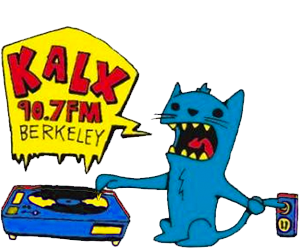Photo by Viðar Logi, review by Jackie Greene
With no choice but to isolate during the pandemic, many of us, in our collective boredom, spent our days coping with various outlets. Some of us took up new hobbies, like baking bread or crocheting. Others looked within and got to know themselves better, be that in regards to their character or their gender and sexuality. Some of us started exercising; some of us stopped exercising. Icelandic, avant-garde musician Björk Guðmundsdóttir, however, spent her time during isolation in the only way one can: experimenting with mushrooms — in the thematic way, of course.
Fungi, nature, motherhood, grief, and grounding all play a massive role in Björk’s 10th studio album Fossora (2022). The album comes five years after the release of Utopia (2017). The bass-heavy, gabber-flavored album serves as a loose continuation, springboarding from Utopia’s airy, flute-centric composition. After Utopia, we float down from the island in the sky and descend back to earth — and then even further down. As a product of the pandemic, Fossora naturally explores the coziness of home and connecting with one’s roots. In announcing the album on Instagram, Björk explains that the inspiration came from the feeling of “nesting in our homes quarantining. Being long enough in one place that we shot down roots.” Furthermore, she also explains that the word “fossora” is completely of her own invention, stemming from a feminine version of the Latin word fossore, “digger.”
As a whole, the album is quite moody and atmospheric. The prevalent clarinets, the frisky strings, the occasional bell, and the brooding bass all sonically combine to create a mental image of a fairy adventure deep underground. Björk’s vocals are, unsurprisingly, as strong as ever.
This is an album that requires multiple listens, context, and further exploration to truly, properly value. For those that only try to sap the maximum possible use-value out of a work of art, they might feel that context pales in comparison to how the actual music, in this case, sounds. The context here, however, is inseparable from the work (as it is in most cases), as the impact of the pandemic, as well as the loss of Björk’s mother (environmental activist Hildur Runa Hauksdóttir) are baked directly into the essence of this album.
For instance, I initially found “Sorrowful Soil” unengaging and left me wanting more. However, of course my perspective changed upon learning that the song is not only a homage to traditional Icelandic choral music, but also serves as a eulogy for Hauksdóttir. Who am I to say ‘I’m sorry about your dead mother, Björk, but maybe next time you should add some hi-hats or break-beats?’ The final product (a disgusting word) is a rather moving tribute as well as a raw expression of vulnerability.
“Ancestress” is the second song written in honor of Hauksdóttir, written as an epitaph, and quite possibly one of the best songs on the entire album, toting a much appreciated array of gongs and bells. Continuing the theme of motherhood, Björk sings with her son Sindri Eldon, for what ultimately results in a whimsical piece. Despite its length, it didn’t drag on too long. While it’s dynamic, the song falls just short of truly “epic,” building to a high point, but just never quite getting there.
Many of the tracks on this album feel this way, repeatedly just shy of the threshold of satisfaction. Furthermore, almost all of the tracks ended abruptly — distractingly abruptly — and while there’s a consistent overall tone, this made the album feel rather disjointed.
Several songs, such as “Ovule,” “Mycelia,” “Fagurt Er Í Fjörðum,” and “Trölla-Gabba” continue the Björkian tradition of exploring the voice as an instrument. While “Fagurt Er Í Fjörðum,” written by Látra-Björg, is a traditional Icelandic poem, and more reminiscent of the acapella moments on Medúlla (2004), “Ovule,” “Mycelia,” and “Trölla-Gabba” explore the voice as an instrument in a highly cutting-edge way. Through splicing and sampling, Björk manages to combine the digital with the corporeal, revisioning one of humanity’s oldest traditions.
Along with Eldon, several others feature on the album. Björk’s daughter, Ísadóra Bjarkardóttir Barney, complements on “Her Mother’s House,” which, in a way, is a continuation of Björk’s matriarchal tree. Out of all the features, serpentwithfeet pairs the nicest with Björk on the track “Fungal City.” Emilie Nicholas, however, was probably the weakest. While perfectly fine, her vocals, through pure style alone, dragged Björk down from the wonderful heights of avant-pop to the hackneyed dregs of just pop.
“Ovule” is my favorite track from the album, and the one track I keep returning to. As explained on the Fossora website, the track is curiously structured in a way so that each section of the song explores the different stages of a relationship. With the triumphant horns on this song, I can’t help but to be put in a good mood.
“Atopos,” however, is my least favorite track from the album. The woodwinds are so discordant that it’s aggravating, and the refrain is so goofy, it calls to mind 100 gecs’ “I Need Help Immediately.” Some of the lesser tracks on this album are just that, but this is the only track that actually inflicts pain. Around 3:18, the percussion kicks into high gear, becoming so punchy that it feels like Björk is busting out of your speakers to come and jump you.
While Fossora borders on the better side of mediocre, a new Björk release is always welcomed. Knowing Björk, I can trust that this work came from a place of artistic integrity and sincerity. I would much rather see artists today follow in the footsteps of the progenitor pop empress than anything else. I’m looking forward to Björk’s next endeavor, and in the meantime, I think I’ll stick with Homogenic (1997).


